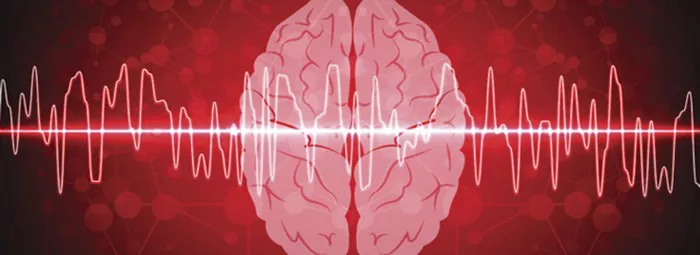Irregular heartbeats, also known as arrhythmias, can be a cause of concern and anxiety for many individuals. While occasional irregular heartbeats are common and usually harmless, persistent or severe irregularities may indicate underlying health issues that require medical attention. In this comprehensive guide, we will explore the different types of irregular heartbeats, their potential causes, risk factors, diagnosis, management strategies, and when to seek professional medical help.
Understanding Irregular Heartbeats
An irregular heartbeat refers to any abnormality in the rhythm or rate of the heartbeat. Normally, the heart beats in a regular, coordinated pattern, pumping blood efficiently throughout the body. This rhythmic pattern is controlled by electrical impulses that originate in the heart’s natural pacemaker, the sinoatrial (SA) node, and travel through specialized pathways.
When these electrical signals are disrupted or altered, the heart may beat too quickly (tachycardia), too slowly (bradycardia), or with an irregular pattern. Some common types of arrhythmias include:
1. Atrial Fibrillation (AFib): This is the most common type of arrhythmia, characterized by rapid and irregular contractions of the atria (upper chambers) of the heart.
2. Supraventricular Tachycardia (SVT): SVT is a rapid heartbeat originating above the ventricles (lower chambers) of the heart.
3. Ventricular Tachycardia (VT): This is a rapid heartbeat originating in the ventricles, which can be life-threatening if sustained.
4. Bradycardia: Bradycardia refers to a slower than normal heart rate, often below 60 beats per minute.
5. Premature Contractions: These are early, extra heartbeats that disrupt the regular rhythm.
Recognizing Symptoms and Risk Factors
The symptoms of irregular heartbeats can vary depending on the type and severity of the arrhythmia. Common symptoms include:
- Palpitations (feeling of rapid, fluttering, or pounding heartbeat)
- Dizziness or lightheadedness
- Shortness of breath
- Chest pain or discomfort
- Fatigue or weakness
- Fainting or near-fainting episodes
Certain risk factors can increase the likelihood of developing irregular heartbeats. These risk factors include:
- Advanced age
- Family history of heart disease or arrhythmias
- High blood pressure
- Diabetes
- Obesity
- Smoking
- Excessive alcohol consumption
- Use of stimulants or certain medications
Diagnosis and Evaluation
If you experience symptoms suggestive of an irregular heartbeat or if your healthcare provider detects an irregular pulse during a routine examination, further evaluation may be necessary. Diagnostic tests commonly used to assess heart rhythm abnormalities include:
1. Electrocardiogram (ECG or EKG): This test records the electrical activity of the heart and can detect abnormal rhythms.
2. Holter Monitor: A portable device worn for 24 to 48 hours to continuously record heart rhythms, providing a more comprehensive assessment than a standard ECG.
3. Event Monitor: Similar to a Holter monitor, but used for shorter periods (e.g., weeks to months) to capture intermittent arrhythmias.
4. Echocardiogram: This imaging test uses sound waves to create a detailed picture of the heart’s structure and function, helping identify underlying heart conditions.
5. Stress Test: Evaluates heart function during physical activity to detect abnormalities that may occur with exertion.
6. Electrophysiology Study (EPS): A specialized procedure in which catheters are inserted into the heart to map its electrical activity and identify arrhythmia triggers.
Managing and Treating Irregular Heartbeats
The management and treatment of irregular heartbeats depend on several factors, including the type and severity of the arrhythmia, the presence of underlying heart disease, and individual patient characteristics. Treatment strategies may include:
1. Lifestyle Modifications: Adopting a heart-healthy lifestyle can help manage irregular heartbeats and reduce the risk of complications. Recommendations may include regular exercise, maintaining a healthy weight, quitting smoking, limiting alcohol and caffeine intake, managing stress, and following a balanced diet low in saturated fats and sodium.
2. Medications: Your healthcare provider may prescribe medications to control heart rhythm (antiarrhythmic drugs), lower blood pressure, prevent blood clots (anticoagulants in atrial fibrillation), or manage underlying conditions such as heart failure or thyroid disorders.
3. Cardioversion: In cases of persistent atrial fibrillation or certain other arrhythmias, cardioversion may be performed to restore normal heart rhythm using electrical shocks (electrical cardioversion) or medications (chemical cardioversion).
4. Catheter Ablation: This procedure involves the use of catheters to deliver energy (such as radiofrequency or cryotherapy) to abnormal heart tissue responsible for causing arrhythmias, aiming to eliminate or disrupt the abnormal electrical pathways.
5. Implantable Devices: For certain arrhythmias, implantable devices such as pacemakers or implantable cardioverter-defibrillators (ICDs) may be recommended to regulate heart rhythm or deliver life-saving shocks if needed.
6. Surgical Interventions: In some cases, surgical procedures such as maze surgery (for atrial fibrillation) or cardiac ablation may be considered to treat underlying structural heart problems contributing to arrhythmias.
When to Seek Medical Help
It’s essential to seek prompt medical attention if you experience symptoms of an irregular heartbeat, especially if they are severe, persistent, or accompanied by other concerning signs such as chest pain, fainting, or difficulty breathing. Additionally, if you have a known arrhythmia and notice changes in your symptoms or response to treatment, inform your healthcare provider promptly.
Emergency medical attention is warranted if you experience:
- Chest pain or pressure
- Severe shortness of breath
- Fainting or loss of consciousness
- Rapid or irregular heartbeat lasting more than a few minutes
- Symptoms suggestive of a stroke (sudden weakness or numbness, difficulty speaking or understanding speech, vision changes, severe headache)
Conclusion
Irregular heartbeats can range from benign to potentially life-threatening, highlighting the importance of early recognition, accurate diagnosis, and appropriate management. By understanding the types of arrhythmias, recognizing associated symptoms and risk factors, undergoing necessary evaluations, and following tailored treatment plans, individuals can effectively manage irregular heartbeats and improve their heart health outcomes. Regular follow-ups with healthcare providers and adherence to recommended lifestyle modifications and medications play key roles in optimizing heart rhythm control and reducing the risk of complications associated with arrhythmias.


